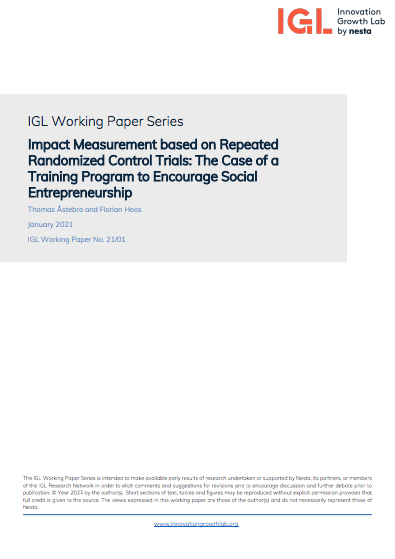Impact Measurement based on Repeated Randomized Control Trials: The Case of a Training Program to Encourage Social Entrepreneurship
Thomas Åstebro and Florian Hoos
January 2021
Designing effective entrepreneurship training programs is still a challenge despite the investments in training made by governments and private institutions, and its importance for economic growth. We report a case of impact measurement of a social entrepreneurship program based on repeated randomized controlled trials (RCTs), discuss challenges of conducting repeated RCTs, and implications for policy evaluation. Impact measures from the first edition of the program showed no detectable treatment effects. The second edition was adjusted by reducing leadership training and increasing traditional entrepreneurial skills training, and had strong treatment effects on entrepreneurial activities, the creation of a new venture during the program, and subsequent start-up activity. Employing sequential field experiments can improve entrepreneurship training programs despite the challenges of executing RCTs in the field.
Keywords: social entrepreneurship; field experiment; policy evaluation; randomized controlled trial; training

